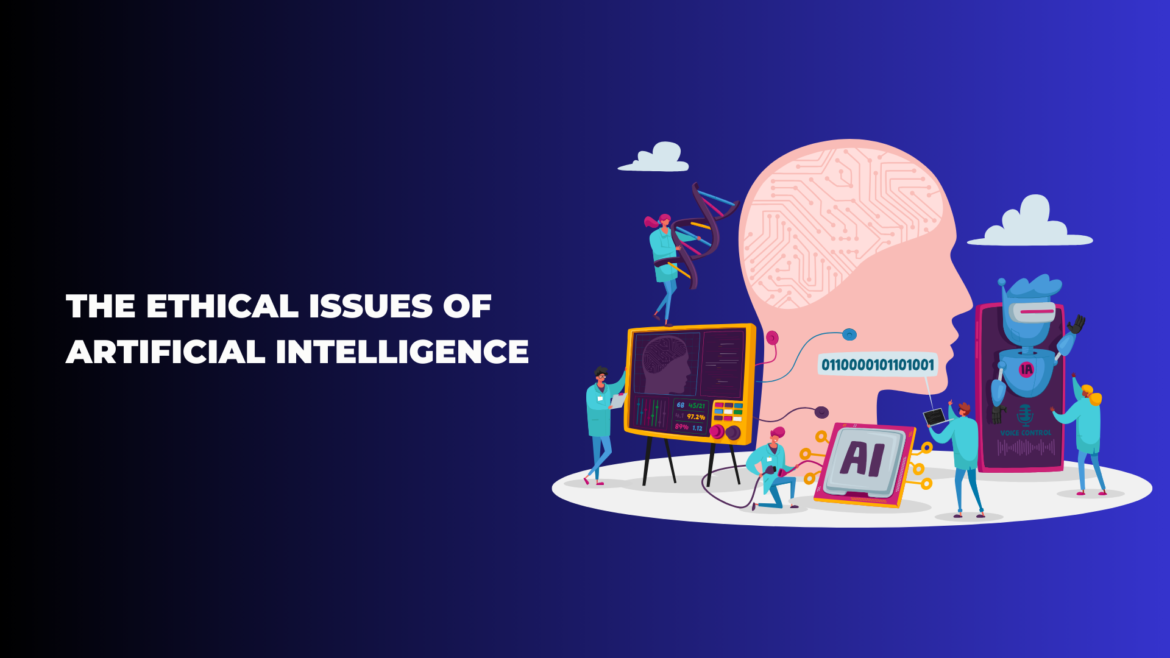Artificial Intelligence (AI) has rapidly become a transformative force across industries, from healthcare and finance to entertainment and transportation. As AI continues to evolve, it brings immense potential for innovation, efficiency, and progress. However, with its rise, AI also introduces significant ethical dilemmas that require careful consideration. Striking the right balance between fostering innovation and ensuring responsibility is crucial to the future of AI technology.
Let’s delve into the key ethical challenges surrounding AI, including bias, privacy, job displacement, and regulation, and discuss how society can navigate these concerns.
1. AI and Bias: The Danger of Unintended Prejudices
One of the most pressing ethical issues in AI is the potential for bias in algorithms. AI systems are trained using vast amounts of data, and if this data contains biased patterns—such as racial, gender, or socioeconomic biases—the AI can perpetuate and even amplify these biases.
For example, facial recognition technology has been shown to have higher error rates for people with darker skin tones and women. Similarly, hiring algorithms, trained on historical data, can unintentionally favor candidates who resemble those previously hired, often excluding diverse candidates.
The Challenge: How can we ensure that AI systems are fair and inclusive?
The Solution: Developers and data scientists must prioritize diversity in both data and design. Additionally, there is a growing emphasis on “explainable AI,” where systems are transparent in how they make decisions, allowing for better detection and correction of bias. Continued research into fairness in AI, along with regulations and oversight, can help reduce bias in AI systems.
2. Privacy: The Trade-off Between Convenience and Data Protection
AI thrives on vast amounts of data, often personal and sensitive in nature. Machine learning models require this data to provide accurate and personalized experiences, from recommending products to diagnosing medical conditions. However, this creates a serious ethical dilemma regarding privacy.
Consider AI-powered virtual assistants that track your preferences, location, and interactions to serve you better. While this can improve user experience, it also raises concerns about the extent of data collection, its storage, and potential misuse.
The Challenge: How can we balance the need for data with the right to privacy?
The Solution: Clear regulations like the General Data Protection Regulation (GDPR) in Europe are steps in the right direction. By enforcing strict data protection laws and giving individuals more control over their personal information, society can mitigate privacy risks. Companies should also prioritize transparency and informed consent, ensuring users are aware of how their data is being collected and used.
3. Job Displacement: The Impact of AI on Employment
As AI systems automate more tasks, there is growing concern over job displacement. From manufacturing to customer service, AI is capable of performing tasks traditionally done by humans. While AI can create new jobs in emerging fields, many worry that it could lead to large-scale unemployment, especially in industries reliant on manual labor.
The Challenge: How do we prepare the workforce for the AI revolution without leaving workers behind?
The Solution: Governments and businesses must invest in reskilling and upskilling initiatives to help workers transition into new roles that AI cannot easily replace. Emphasizing human-centric roles that require emotional intelligence, creativity, and critical thinking can provide a safeguard against automation. A thoughtful approach to automation, one that includes social safety nets like universal basic income (UBI), may also play a role in addressing the negative effects on employment.
4. Regulation: Navigating the Uncharted Terrain
The rapid development of AI technology presents significant challenges when it comes to regulation. Unlike traditional technologies, AI operates in dynamic and often unpredictable ways, making it difficult to create laws that can keep pace with innovation. Furthermore, AI is a global phenomenon, and inconsistent regulations across countries can create problems in governance and ethical oversight.
The Challenge: How do we regulate AI without stifling innovation?
The Solution: A global approach to AI regulation is essential, involving collaboration between governments, technologists, ethicists, and civil society to create standards that ensure AI is used responsibly. Developing frameworks for AI transparency, accountability, and ethical use is key to preventing misuse without curbing innovation. Ethical guidelines should be established that address specific concerns like AI’s role in decision-making, accountability in autonomous systems, and protection from misuse.
5. The Role of AI in Society: Humanity and Control
As AI becomes increasingly autonomous, the ethical dilemma of control arises. When AI systems are used to make high-stakes decisions—such as in self-driving cars, healthcare diagnostics, or law enforcement—the question arises: Who is responsible when something goes wrong?
The Challenge: How do we ensure that humans remain in control of AI decision-making?
The Solution: Ensuring robust human oversight and decision-making power is essential in sensitive areas like healthcare and criminal justice. AI should be viewed as a tool to augment human judgment, not replace it. This will require developing ethical frameworks and transparency around how AI makes decisions, and ensuring accountability in AI systems.
Conclusion: Balancing Innovation with Responsibility
AI holds incredible potential to reshape industries and improve lives, but it also raises profound ethical questions. Striking the balance between innovation and responsibility is crucial for ensuring that AI benefits society as a whole, without causing harm or exacerbating existing inequalities.
To achieve this, a multi-disciplinary approach is necessary, bringing together developers, policymakers, ethicists, and the public to create a framework that encourages innovation while protecting privacy, ensuring fairness, preventing job loss, and establishing clear guidelines for regulation. As AI continues to evolve, it’s essential that we, as a society, shape its future with foresight, empathy, and responsibility.
